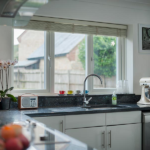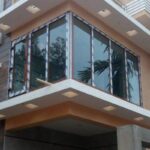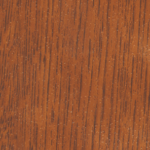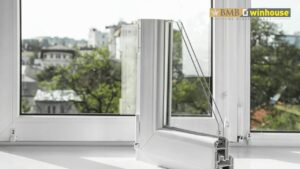
Table of Contents
ToggleIntroduction
Quality plays a pivotal role in the world of Quality in uPVC Windows and Doors profiles. These components, crafted from Unplasticized Polyvinyl Chloride (uPVC), offer a plethora of advantages in construction. Let’s delve into the intricacies of uPVC, its quality standards, and the far-reaching impacts of choosing top-notch profiles for your home.
Quality Standards for uPVC Profiles
Definition of uPVC
Unplasticized Polyvinyl Chloride, commonly known as uPVC, is a robust and versatile material extensively employed in construction due to its non-toxic and corrosion-resistant properties.
Significance of uPVC in construction
The significance of uPVC lies in its ability to enhance construction materials, providing a durable and reliable solution for doors and windows.
Advantages of High-Quality in uPVC Windows and Doors Profiles
Energy efficiency
Investing in high-quality uPVC Windows and Doors contributes to superior thermal insulation, resulting in energy-efficient homes and reduced utility bills.
Durability and longevity Quality in uPVC Windows and Doors
Quality matters when it comes to the longevity of Quality in uPVC Windows and Doors. Choosing top-notch profiles ensures they withstand the test of time, minimizing the need for frequent replacements.
Aesthetic appeal
Discover how high-quality uPVC profiles not only offer functional benefits but also enhance the visual appeal of your home.
Factors Affecting the Quality of uPVC Doors
Material composition
The composition of uPVC doors significantly influences their quality. Understanding the key components ensures strength and durability.
Manufacturing process
Delve into the manufacturing process of uPVC doors and its impact on the final product’s quality and performance.
Installation considerations
Learn why proper installation is critical for maximizing the benefits of uPVC doors, and ensuring they perform optimally.
How Quality Impacts uPVC Window Performance
Thermal insulation
Quality directly affects the thermal efficiency of uPVC windows, creating a comfortable indoor environment by preventing heat loss.
Soundproofing
Explore how high-quality uPVC windows contribute to soundproofing, fostering a peaceful living space by minimizing external noise.
Maintenance
Discover how quality influences the maintenance requirements of uPVC windows, ensuring they remain in optimal condition with minimal effort.
Common Misconceptions about Quality in uPVC Windows and Doors
All uPVC are the same
Dispelling the myth that all uPVC is created equal, and understanding the factors that differentiate quality profiles from the rest.
The high price means high quality
Challenging the notion that expensive uPVC automatically translates to superior quality, and highlighting the importance of informed choices.
Maintenance Tips for Quality in uPVC Windows and Doors
Cleaning and care
Master the art of keeping uPVC windows and doors clean, ensuring they remain visually appealing and function optimally.
Repair and maintenance
Discover practical tips for addressing common issues and ensuring the longevity of your uPVC profiles.
Choosing the Right uPVC Profiles for Your Home
Assessing your needs
Navigate the selection process by understanding your specific requirements and preferences.
Consulting with experts
Seeking professional advice when choosing uPVC profiles ensures you make informed decisions tailored to your home.
Environmental Impact of Quality in uPVC Windows and Doors
Recycling possibilities
Explore the eco-friendly aspects of uPVC, including its recyclability and the environmental benefits of choosing this material.
Energy efficiency benefits
Understand how uPVC contributes to energy efficiency, making it a sustainable choice for eco-conscious homeowners.
Frequently Asked Questions (FAQs)
1. Are uPVC windows better than other materials?
uPVC comes from its more technical term Unplasticized Polyvinyl Chloride and is considered one of the best low-maintenance alternatives to wood. Whether you’re willing to replace old windows or install double glazing, you will probably be recommended to uPVC as it’s the cheapest yet very durable material.
uPVC (unplasticized polyvinyl chloride) windows have become a popular choice for homeowners, and whether they are better than other materials depends on various factors and individual preferences. Here are some advantages of uPVC windows:
- Durability: uPVC windows are known for their durability. They are resistant to rotting, warping, and corrosion, making them suitable for various weather conditions.
- Low Maintenance: uPVC windows require minimal maintenance. They do not need to be painted, and cleaning them is usually a straightforward task.
- Energy Efficiency: uPVC has good insulation properties, helping to reduce heat loss. This can contribute to energy efficiency in homes and potentially lower heating and cooling costs.
- Cost-Effective: uPVC windows are often more affordable than alternatives like wood or aluminum. The initial cost and long-term savings in maintenance can make them a cost-effective choice.
- Sound Insulation: uPVC windows can provide good sound insulation, reducing noise from the outside.
2. Can uPVC profiles be painted?
Yes, uPVC windows and uPVC doors can be painted! The most popular method is spray painting or hand painting. Having your uPVC and exterior elements professionally spray painting is a cost-effective method and is guaranteed to achieve a flawless ‘factory finish’.
If you attempt to paint uPVC, there are several challenges to consider:
- Adhesion Issues: Paint may not adhere well to the smooth surface of uPVC, leading to issues like peeling or flaking over time.
- Flexibility: uPVC profiles can expand and contract with temperature changes, and rigid paint may not flex in the same way. This could result in cracking or other paint damage.
- Manufacturer’s Warranty: Painting uPVC profiles may void the warranty provided by the manufacturer, as it deviates from the intended use and maintenance of the material.
3. What is the lifespan of uPVC windows?
Typically lasting around 20 years, which can vary between 10-35 years depending on the quality and upkeep, if your uPVC windows were installed around 1999 it’s likely that they could need replacing or at least repairing by now.
It’s important to note that the quality of the uPVC material and the craftsmanship of the installation play crucial roles in determining how well uPVC windows will perform over time. High-quality uPVC windows, installed by professionals, are likely to have a longer lifespan than lower-quality alternatives or improperly installed windows.
Regular inspections of the seals, hardware, and overall condition of the windows can help identify any issues early on and address them promptly, contributing to the longevity of the uPVC windows. Manufacturers often provide guidelines on maintenance and care to ensure optimal performance and a longer lifespan for uPVC windows.
4. Are uPVC doors suitable for all climates?
uPVC windows are designed to withstand extreme weather conditions. They are water-resistant, and the frames have a slope that allows rainwater to drain out easily.
uPVC (unplasticized polyvinyl chloride) doors are generally suitable for a wide range of climates, and they have become popular in various regions worldwide. However, it’s important to consider specific factors related to climate when choosing uPVC doors:
- Temperature Extremes: uPVC is known for its thermal efficiency, making it suitable for both cold and hot climates. It provides good insulation, helping to keep interiors warmer in cold weather and cooler in hot weather.
- Moisture Resistance: uPVC is resistant to moisture, which makes it suitable for humid climates. Unlike materials like wood, uPVC does not rot or warp when exposed to moisture, making it a durable choice in areas with high humidity.
- UV Resistance: uPVC has good resistance to ultraviolet (UV) rays, which is beneficial in sunny climates. UV resistance helps prevent fading, discoloration, and degradation of the material over time.
- Corrosion Resistance: uPVC is resistant to corrosion, making it suitable for coastal areas where saltwater and salty air can cause corrosion in some other materials.
While uPVC is versatile and performs well in various climates, it’s essential to consider the quality of the uPVC product and the installation. High-quality uPVC doors, installed properly, are more likely to withstand the challenges of different climates and provide long-lasting performance.
5. Can uPVC profiles be recycled?
uPVC can be recycled up to ten times, meaning that they can still be used in making windows after 300 years without losing their Quality in uPVC Windows and Doors.
Recycling uPVC typically involves the following steps:
- Collection: Old uPVC profiles are collected from construction sites or through recycling programs.
- Sorting: The collected uPVC is sorted to remove any contaminants or materials that are not uPVC.
- Processing: The sorted uPVC is then processed, often through mechanical methods or chemical processes, to break it down into smaller particles or pellets.
- Remanufacturing: The processed uPVC is used to manufacture new uPVC products, such as profiles for windows, doors, pipes, or other applications.
Conclusion
In conclusion, the importance of Quality in uPVC Windows and Doors profiles cannot be overstated. From energy efficiency to environmental impact, making informed choices ensures a home that is not only comfortable but also sustainable.










